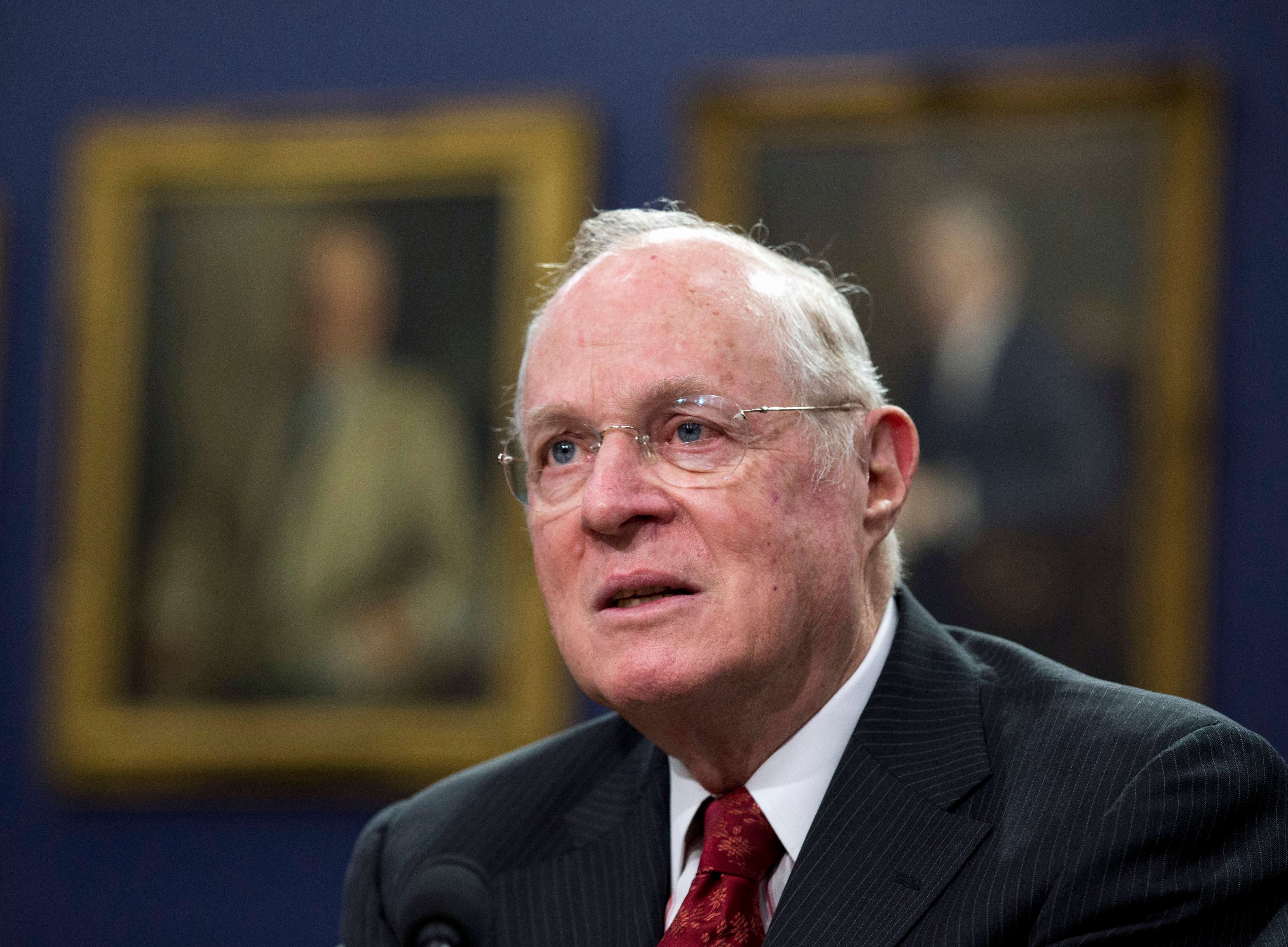The Volokh Conspiracy
Mostly law professors | Sometimes contrarian | Often libertarian | Always independent
Justice Kennedy's opinion in the gay marriage case may upend fifty-plus years of settled equal protection and due process jurisprudence

Justice Kennedy's opinion implicitly continues his campaign to undermine post-New Deal constitutional doctrine on due process and equal protection.
According to black-letter law, at least as understood until recently, with regard to equal protection claims the vast majority of laws are subject to so-called rational basis scrutiny, but strict scrutiny applies if a "suspect class" such as a racial minority faces discrimination, or if a fundamental right is involved and the law is challenged as an arbitrary classification. With regard to due process, strict scrutiny applies to fundamental rights, and infringements on all other rights receive rational basis scrutiny.
Kennedy does not even address the possibility that homosexuals are a suspect class (which to my mind would have been the strongest rationale for the Court's decision). Instead he points out that the Court has consistently held that marriage is a fundamental right, and then basically says that if you combine due process liberty interests with equal protection concerns, the proponents of constitutional protection for gay marriage win.
According to traditional doctrine, even when a fundamental right is involved and strict scrutiny is applied, whether under equal protection or due process, the government can still win if it can show that it has a compelling interest in infringing on the fundamental right, and that the infringement is narrowly tailored to further that compelling interest.
Kennedy, however, never invokes the compelling interest test. In fact, the phrase "compelling interest" doesn't appear in his opinion at all.
All this is of a piece with Kennedy's prior opinions in cases like U.S. v. Windsor, Lawrence v. Texas, Romer v. Evans, and Planned Parenthood v. Casey, where Kennedy basically ignored the rational basis/strict scrutiny dichotomy and essentially balanced liberty and equality interests against the government's claimed interests. Kennedy is even willing to invoke the due process clause to protect property rights, when his conservative colleagues will only rely on the Takings clause.
Chief Justice Roberts's dissent relies on Lochner v. New York as an anti-canonical case in a crude and historically inaccurate manner. (I will surely have more to say about that later.) [UPDATE: Here's my discussion of Roberts' treatment of Lochner].
But there is one sense in which Kennedy's opinion does indeed hark back to the so-called Lochner era. The courts in those days, especially in the early part of the era, frequently invoked equal protection and due process almost interchangeably. The key issue was not whether some specific concept of due process or equal protection had been violated, but whether the government had justified its infringement on the rights of the citizenry by invoking a legitimate government interest. In other words, was the law in question an arbitrary or justified exercise of government power.
In those days, the shorthand for legitimate government interest was the "police power," which in practice was fairly broad, including government regulations meant to advance public health, safety, and importantly, morality.
Kennedy adopts a similar balancing test, but on the one hand gives greater weight to individual rights when he believes a law is either motivated by animus or infringes on what he considers a fundamental right (or both), and on the other hand has a narrower definition of the police power, in particular excluding considerations of morality from being considered legitimate government interests.
The post-New Deal settlement, which basically sought to preserve judicial protection of fundamental rights and minority rights while constraining the Court's ability to broadly protect liberty and equality interests as the Justices see them is threatened by Justice Kennedy's jurisprudence.
The interesting doctrinal question going forward is whether Kennedy's opinion signals the death knell of due process/equal protection jurisprudence as we have known it for the last 50 years or so, or whether the Court will cabin his opinions so that they are limited to the gay-rights context. (In other words, do the liberal justices actually agree with Kennedy's perspective, or do they just go along with it to ensure they get the fifth vote in gay-rights cases?)


Show Comments (0)